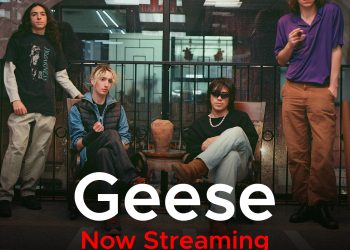Early Internet Communities
In the early days of the internet, online communities formed around shared interests and hobbies, laying the groundwork for the development of internet culture. From Usenet groups to early message boards, these communities provided a space for like-minded individuals to connect and collaborate.
Rise of Social Media Platforms
The advent of social media platforms like Facebook, Twitter, and Instagram revolutionized the way we interact online, facilitating the rapid spread of ideas, trends, and memes. These platforms became fertile ground for the cultivation of internet culture, giving rise to new forms of digital expression and communication.
The Influence of Memes
Definition and Characteristics of Memes
Memes, defined as cultural symbols or ideas that spread virally from person to person within a culture, have become a cornerstone of internet culture. Characterized by their humor, wit, and often absurdity, memes serve as a reflection of societal values, attitudes, and trends.
Memes as a Form of Cultural Expression
Memes have transcended their status as mere internet jokes to become powerful vehicles for cultural expression and commentary. From humorous cat videos to poignant political satire, memes have the ability to encapsulate complex ideas and emotions in a succinct and shareable format.
From Viral Sensations to Social Movements
Examples of Memes Evolving into Movements
Numerous examples exist of memes evolving into larger social movements, catalyzing real-world change and activism. From the “Ice Bucket Challenge” raising awareness for ALS to the “Black Lives Matter” movement, memes have the power to mobilize individuals and communities around shared causes.
Role of Memes in Political Activism
Memes have emerged as a potent tool for political activism, providing a platform for dissent, protest, and social commentary. Political memes often serve as a form of resistance against established power structures, challenging authority and sparking public debate.
The Spread of Internet Slang and Language
Impact of Internet Slang on Language Evolution
Internet slang, characterized by its brevity and informality, has seeped into mainstream language, influencing the way we communicate both online and offline. From abbreviations like “LOL” and “BRB” to more recent additions like “YOLO” and “FOMO,” internet slang reflects the evolving nature of language in the digital age.
Linguistic Diversity in Online Communities
The internet has given rise to a diverse array of online communities, each with its own unique linguistic norms and conventions. From gaming forums to niche subreddits, these communities foster linguistic creativity and innovation, shaping the development of new dialects and vernaculars.
Internet Culture and Identity
Formation of Online Identities
The anonymity of the internet allows individuals to experiment with different personas and identities, blurring the lines between reality and fiction. Online identities can be fluid and multifaceted, enabling individuals to explore aspects of themselves that may not be readily apparent in their offline lives.
Subcultures and Niche Communities
The internet is home to a vast array of subcultures and niche communities, united by shared interests, hobbies, and identities. From fan communities devoted to obscure TV shows to forums dedicated to niche hobbies like stamp collecting, these communities provide a sense of belonging and camaraderie for their members.
The Dark Side of Internet Culture
Spread of Misinformation and Fake News
The decentralized nature of the internet has made it a breeding ground for misinformation and fake news, which can spread rapidly and unchecked through social media and online forums. This phenomenon poses significant challenges for media literacy and critical thinking in the digital age.
Cyberbullying and Online Harassment
The anonymity afforded by the internet has also led to an increase in cyberbullying and online harassment, with individuals using online platforms to target and intimidate others. This dark side of internet culture highlights the need for stronger measures to combat online abuse and protect vulnerable users.
Internet Culture as a Catalyst for Creativity
Collaborative Content Creation
The internet has democratized the creative process, allowing individuals from diverse backgrounds and skill levels to collaborate on projects and initiatives. From collaborative fan fiction to crowdsourced art projects, the internet has become a hub for creative collaboration and innovation.
Crowdsourced Projects and Initiatives
Crowdsourcing platforms like Kickstarter and Indiegogo have revolutionized the way creative projects are funded and realized, empowering creators to bring their ideas to life with the support of a global community. These platforms have democratized access to funding and resources, enabling individuals to pursue their creative passions on their own terms.
The Commercialization of Internet Culture
Brands Leveraging Internet Trends for Marketing
Brands have increasingly turned to internet culture as a source of inspiration for their marketing campaigns, tapping into viral trends and memes to connect with consumers on a more personal level. From viral challenges to meme-inspired merchandise, brands are capitalizing on the cultural currency of internet culture to drive engagement and sales.
Influencer Culture and Sponsored Content
The rise of influencer culture has further blurred the lines between internet culture and commercialization, with influencers partnering with brands to promote products and services to their followers. While influencers can serve as powerful advocates for brands, their endorsements also raise questions about authenticity and transparency in online advertising.
The Future of Internet Culture
Emerging Trends and Shifts in Online Behavior
As technology continues to evolve, internet culture will undoubtedly undergo further transformations, with new platforms, trends, and behaviors emerging on the digital landscape. From the rise of virtual reality to the growing influence of AI-generated content, the future of internet culture promises to be both exciting and unpredictable.
Potential Impact of Regulation and Censorship
The future of internet culture also hinges on the regulatory and legal frameworks that govern online behavior, with potential implications for freedom of expression and creativity. As governments around the world grapple with issues like online harassment and fake news, the balance between regulation and innovation will shape the future trajectory of internet culture.
Conclusion
From memes to movements, internet culture has become a powerful force shaping the way we communicate, interact, and express ourselves online. As we navigate the ever-changing landscape of the digital age, understanding the dynamics of internet culture is essential for harnessing its potential for creativity, activism, and social change.

FAQs After The Conclusion
1. What is internet culture?
Internet culture refers to the collective norms, behaviors, and trends that emerge from online communities and interactions, encompassing everything from memes and viral sensations to linguistic quirks and niche subcultures.
2. How do memes influence online discourse?
Memes serve as a form of cultural shorthand, allowing individuals to convey complex ideas and emotions in a succinct and shareable format. They can shape online discourse by sparking conversations, challenging established norms, and mobilizing communities around shared causes.
3. What role does internet slang play in online communication?
Internet slang reflects the dynamic and informal nature of online communication, providing a shorthand for expressing ideas and emotions in a fast-paced digital environment. It fosters a sense of community and belonging among online users while also influencing the evolution of language.
4. How has internet culture impacted creativity and collaboration?
Internet culture has democratized the creative process, allowing individuals from diverse backgrounds and communities to collaborate on projects and initiatives. From collaborative content creation to crowdsourced funding platforms, internet culture has fostered a culture of innovation and experimentation.
5. What are some challenges facing internet culture?
Some challenges facing internet culture include the spread of misinformation and fake news, cyberbullying and online harassment, and the commercialization of online spaces. These issues highlight the need for greater media literacy, digital citizenship, and ethical guidelines in the digital age.
6. How can individuals contribute to positive internet culture?
Individuals can contribute to positive internet culture by practicing empathy and respect in their online interactions, critically evaluating information before sharing it, and actively participating in efforts to combat online abuse and harassment. By fostering a culture of kindness and accountability, we can create a safer and more inclusive online environment for everyone.
7. What are some emerging trends in internet culture?
Some emerging trends in internet culture include the rise of virtual reality and immersive experiences, the growing influence of AI-generated content, and the increasing convergence of online and offline experiences. These trends promise to shape the future of internet culture in exciting and unexpected ways.
8. How can businesses leverage internet culture for marketing purposes?
Businesses can leverage internet culture for marketing purposes by staying attuned to current trends and memes, engaging authentically with online communities, and partnering with influencers and content creators to reach target audiences. By tapping into the cultural currency of internet culture, brands can foster meaningful connections with consumers and drive engagement and loyalty.















